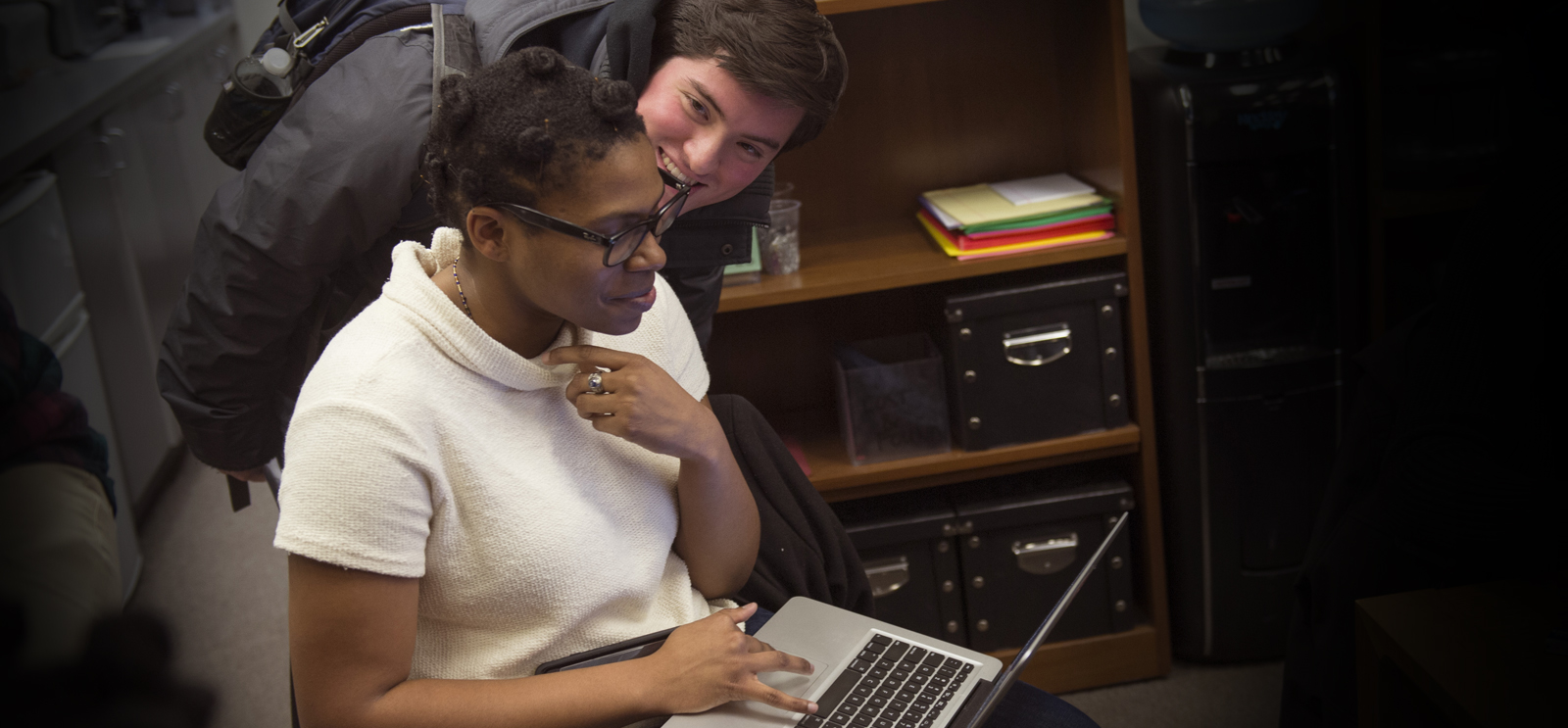
(Photography by Robert Kozloff)
From the Small School Talent Search to the Odyssey Scholarship program, an education in supporting students.
The Small School Talent Search, an admissions experiment launched in the 1960s, reached out to rural high schools to find potential Maroons who otherwise might not apply to—or know about—the University of Chicago (see “No Small Talent”).
As SSTS recruit Tom Heberlein, AB’67, tells it, those who made their way to UChicago found it heady, momentous, world expanding. But it could also be rough. When he arrived in 1963, few measures were in place to ease students’ introduction to a big city and a demanding curriculum.
As a result, he argues, not every one of them formed as happy a match with the College as they might have. SSTS students left before graduating in greater numbers than their peers. Many, he says, felt thrown into the deep end without swimming lessons.
The SSTS is no more, but the College still works hard to enroll students from many socioeconomic backgrounds. Compared to peers, it succeeds: a January 2017 interactive feature in the New York Times showed that among 12 “Ivy-plus” schools, UChicago students have the lowest median family income. Only one peer school enrolled more students from outside the top 1 percent.
Part of the success in bringing more lower- and middle-income students to campus is owed to Odyssey Scholarships, which replace loans with grants and provide paid internships, career advising, and study abroad assistance for students with financial need. The College Academic Achievement Program offers immersive on-campus academic prep to 50 first-years each summer.
The support continues day to day on campus. Midquarter I visited the 16-month-old Center for College Student Success (CCSS) in Harper Memorial Library. Open to all undergraduates, the CCSS was designed to serve students who are the first in their family to attend college, come from under-resourced backgrounds, or are undocumented.
The day I was there, students and advisers mingled in the CCSS’s comfy study room with its textbook library, loaner laptops, and free printing. Six academic advisers within CCSS are assigned fewer advisees so they can spend more time with each. The program also makes emergency loans and hosts programs on practical student skills: how to make the most of faculty office hours, how to ask a professor for a recommendation. It works closely with other groups on campus that support low-income students.
Such resources show how much we’ve learned about helping students thrive since the SSTS experiment—and there’s a way College alumni can contribute. If you were the first in your family to attend college and would like to mentor first-generation College students, visit ccss.uchicago.edu/support/mentoring or email ccss@uchicago.edu for more information.
